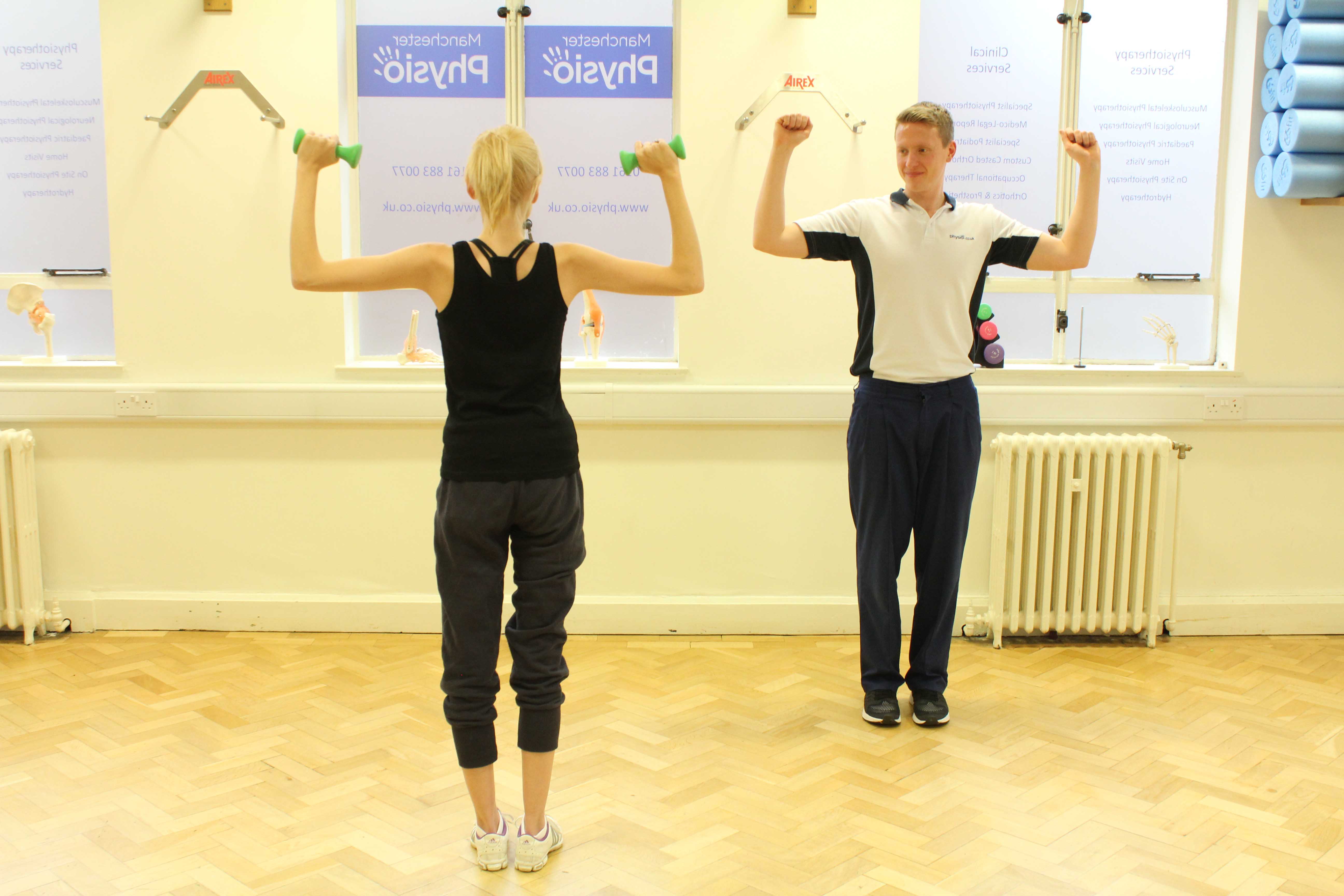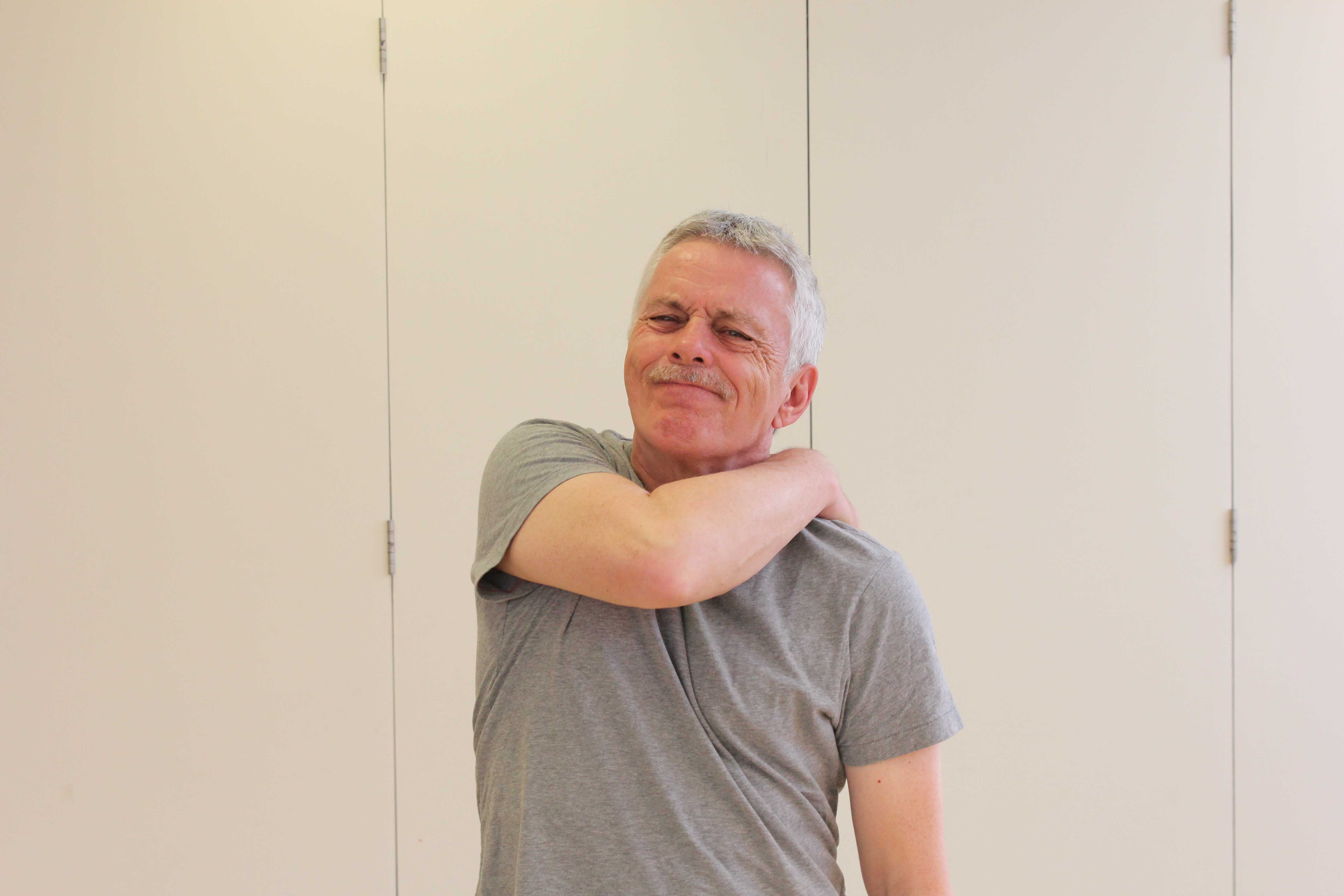What is a rotator cuff tear?
The rotator cuff refers to a group of four small muscles that run from the shoulder blade to the top of the arm bone. They support and move the shoulder joint. A rotator cuff tear refers to a tear in one or more of these muscles. Physiotherapy can effectively treat rotator cuff tears.
 Above: Shoulder toning exercises supervised by experienced physiotherapist
Above: Shoulder toning exercises supervised by experienced physiotherapistHow can a rotator cuff tear happen?
A rotator cuff muscle may be torn when it is forcibly contracted or overstretched.
What are the symptoms of a rotator cuff tear?
A tear of a rotator cuff muscle is usually felt as sudden sharp pain or ‘twinge’ in the shoulder. With minor tears you may be able to continue participating after this pain with minimal hindrance. However, as the muscle cools down the pain often gradually worsens as bleeding and swelling around the injured muscle takes place. In severe tears, pain may be so significant that you are unable to continue participating. Other symptoms may include:
What should I do if I have a rotator cuff tear?
The most important time in the initial treatment of a rotator cuff tear is the first 24–48 hours. This is when bleeding and swelling around the injured muscle is most active. To control the amount of swelling and, therefore, limit the degree of damage, the injured muscle should be rested and iced. Ice should be applied to the injured site for 15–20 minutes every 1–2 hours using crushed ice or a packet of frozen peas wrapped in a moist cloth or towel. You should contact your physiotherapist as soon as possible following your injury.
Physiotherapy treatment for a rotator cuff tear.
Physiotherapy is very important in the treatment of a rotator cuff tear. Initially, your physiotherapist can determine the exact tissue/s damaged and the extent of this damage. From this they can estimate how long the injury should take to heal and develop a specific treatment programme. The latter often involves activity modification, electrotherapies and the use of soft tissue treatment such as massage and stretching, and a series of specific, progressive strengthening exercises. These exercises will help facilitate your return to normal activity, prevent re-injury and reduce your chances of developing longer-term effects.
Other treatments include:
What shouldn’t I do if I have a rotator cuff tear?
In the first few days following rotator cuff tear you shouldn’t undertake activities which increase blood flow to the injured muscle. These include hot showers, shoulder stretching, heat rubs, massage, consuming alcohol and excessive use of your arm. These can prolong muscle bleeding and exaggerate swelling resulting in further pain and an extended recovery.
 Above: A rotaor cuff tear can occur instantly or gradually over time.
Above: A rotaor cuff tear can occur instantly or gradually over time.Could there be any long-term effects from a rotator cuff tear?
Some rotator cuff tears can result in longer-term effects. This usually depends on the severity of the tear. When a rotator cuff muscle is completely torn, surgery is required to repair the muscle. A rotator cuff tear that requires a surgical repair will generally take longer to rehabilitate. In minor tears recovery can be prolonged if the tear is not appropriately managed. This may result in a tight, weak rotator cuff muscle which is prone to reinjury on return to normal activity. This weakened muscle may also predispose you to other shoulder injuries such as rotator cuff tendinopathy
To arrange a physiotherapy assessment call Physio.co.uk on 0330 088 7800 or book online.

 0330 088 7800
0330 088 7800

































